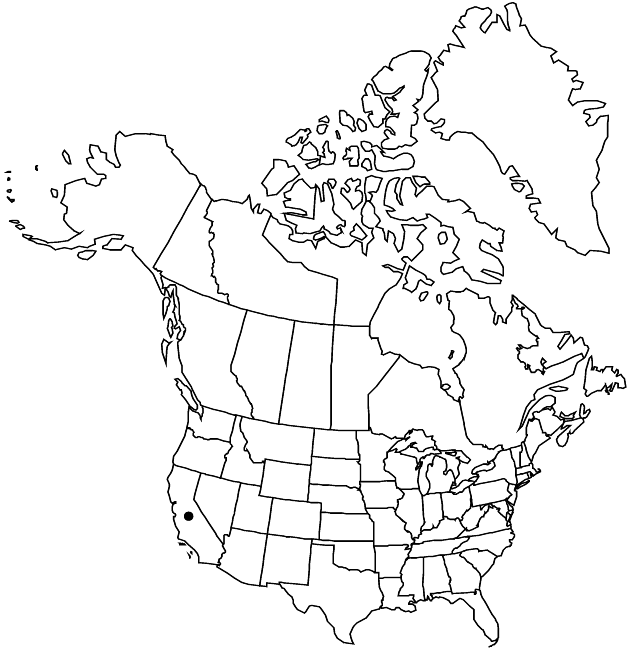Nicolletia occidentalis
in J. C. Frémont, Rep. Exped. Rocky Mts., 316. 1845.
Common names: Hole-in-the-sand plant
Revision as of 20:13, 5 November 2020 by imported>Volume Importer
Perennials, (5–)10–29 cm (deeply taprooted). Stems erect. Leaf blades 20–70 mm overall, lobes 5–11, ± quadrate to linear, rachis widths mostly 2–3 times lobe widths. Peduncles 2–10 mm. Calyculi of 2–4 bractlets 4–8 mm. Involucres turbinate to cylindric, 14–18 mm. Phyllaries 8–12, linear to ovate. Ray florets 8–12, laminae 4–9 × 2.5–4 mm. Disc florets (30–)60–100+; corollas yellow, purple-tipped, 8–9.5 mm. Cypselae 7–9 mm; pappi: bristles 3–7 mm, scales 6–8 mm. 2n = 20.
Phenology: Flowering spring.
Habitat: Deep sands of fans and floors of desert washes
Elevation: 600–1400 m
Distribution

Calif., Mexico (Baja California).
Discussion
Selected References
None.
Lower Taxa
None.